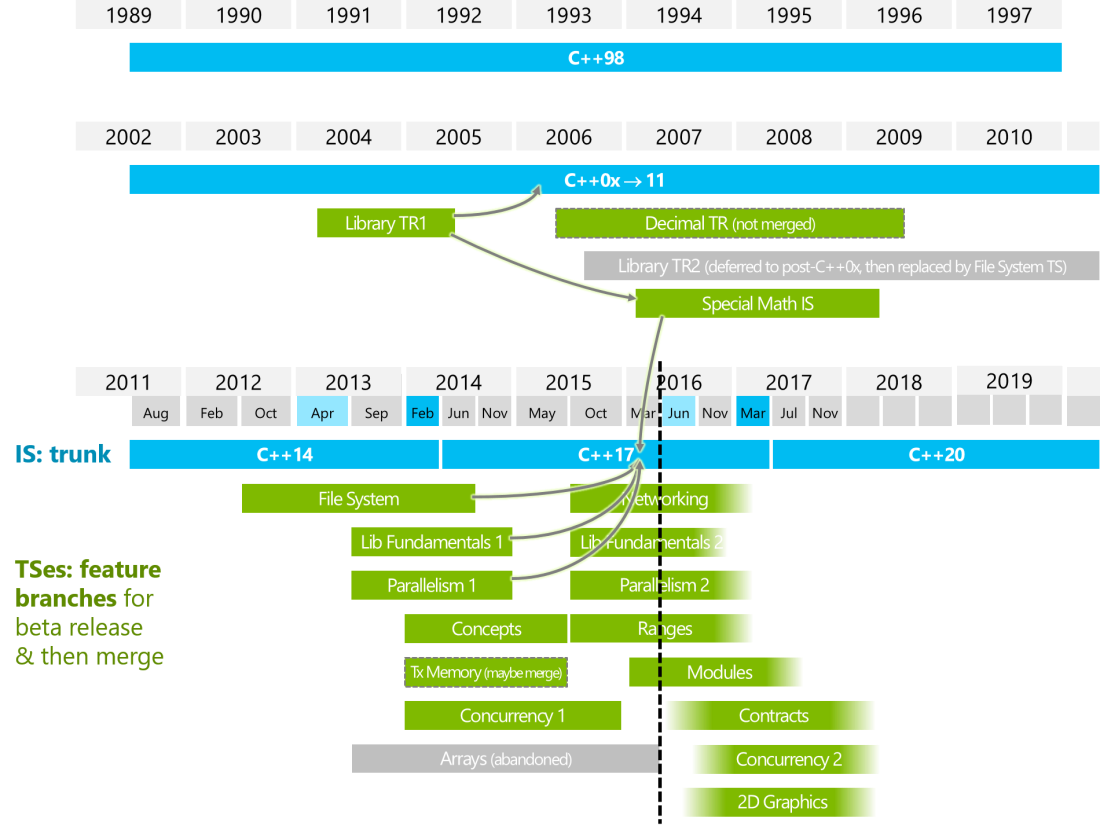Written by
Sangwan Kwon
on
on
How C++ flow?
C++20에 대한 윤곽이 잡히고 있다. C++은 어떻게 변화해가고 있는지 살펴보자.
C++ 표준의 역사
우리가 흔히 이야기하는 C++은 C++03이다. C++은 1983년도에 처음 모습을 드러내었고 1998년에 첫 표준화인 C++98을 거쳐, 2003년도에 버그들을 수정하여 C++03가 나왔다.
이후 다른 언어라고까지 표현되는 Modern C++은 2011년도에 표준화된 C++11부터를 나타내며, 마이너 업데이트인 C++14를 포함한다. Modern C++ 이후부터는 3년마다 새로운 표준을 내놓는 ‘기차 모델’을 따른다.
아래의 그림의 초록색은 TS(Technical Specification)을 나타낸다. TS가 충분히 논의되고 합의에 이르면 다음 버전에 포함되는데, 이를 트렁크에 포함되었다고 표현한다. 아래의 파랜색은 트렁크를 나타낸다.

C++11
Modern C++이라 표현되는 C++11은 thread, type_traits를 포함하여 무려 13개의 헤더가 추가되었다. 대표적인 새로운 기능은 move, lambda expression, rvalue reference, smart pointer이며 이 외에도 중요한 문법적 요소들이 많이 추가 되었다.
- auto and decltype
- defaulted and deleted functions
- final and override
- trailing return type
- rvalue references
- move constructors and move assignment operators
- variadic templates
- lambda expressions
- noexcept specifier and noexcept operator
- multithreaded memory model
- thread-local storage
- range-for (based on a Boost library)
- static_assert (based on a Boost library)
- …
C++17
C++17은 새로운 에러처리 방식인 optional부터 filesystem등 8개의 헤더가 추가 되었다. 새로운 헤더뿐 아니라 문법적 요소를 포함한 새로운 기능들이 추가되었다. 아래는 그 중 몇가지를 선정하여 나열한 것이다.
- fold-expressions
- class template argument deduction
- auto non-type template parameters
- compile-time if constexpr
- inline variables
- structured bindings
- initializers for if and switch
- …